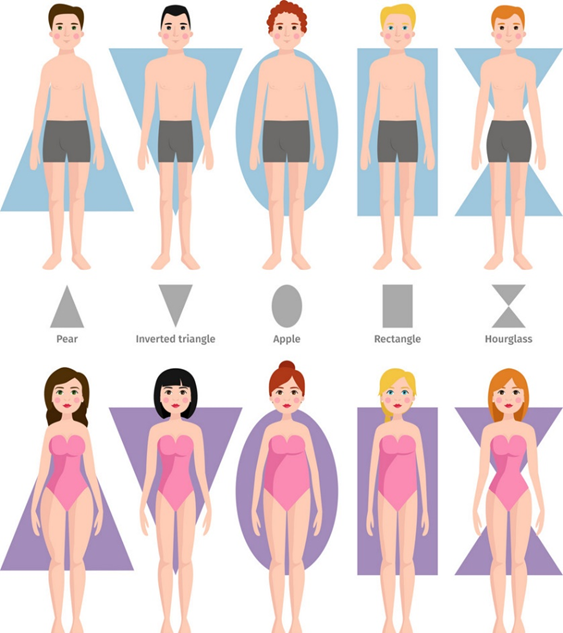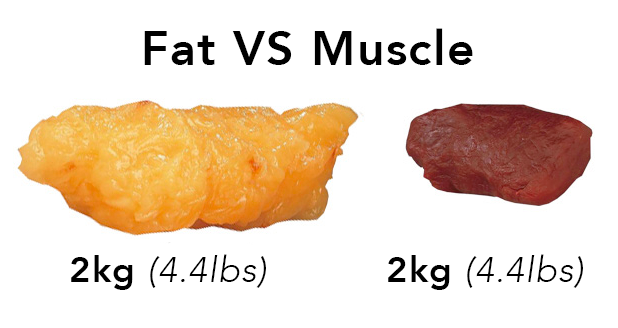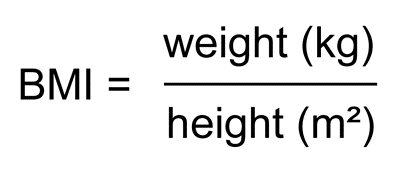How to reach your ideal weight
What is the ideal weight suitable for my height?
How do I get there?
How long will that take ??
These questions have always haunted many pursing logical answers, scientifically based, and proven rules that suit them and give the desired and expected results. Reaching the ideal weight, a certain appearance and a sound state of health was and still is the desire of many, especially after the spread of chronic diseases and their concurrence without a minimum age as a risk factor for occurrence or complications. Such as obesity, diabetes, high blood pressure, hormonal disorders in girls and women and many endless diseases. It defiantly has a negative impact on people, but it also extends to affect societies.
In this article, we will talk in detail about:-
- What is the ideal weight?
- What is the Body Mass Index BMI?
- How does weight loss happen?
- Tips for losing weight effectively with no side effects.
-
What is the ideal weight?
The ideal weight is the weight that accompanies the best health status of a person, contrary to the expectations of many, it is not just a number that is reached in any way and the task is completed after it. There is no single ideal weight for everyone, being at a weight proportional to your height does not guarantee that you will look like another person with the same weight and height, because there are many factors playing a role in determining the weight and shape of the body and what suits each person, such as:
-
Age
The shape of the body changes with age, as there are significant hormonal changes that occur in different stages of life. At puberty, male and female hormones control the shape and completely change the body. Then, during pregnancy, the presence and needs of the fetus affect the entire woman's body, and when a woman enters menopause, the hormonal balance changes and they may notice fat redistribution, and upon reaching old age, both men and women have to make more effort to maintain muscle mass because the body is vulnerable to losing muscle mass at this age.
-
Height and body proportions
As the height of a person increases, his weight increases as muscle and fat mass and his body proportions also changes. Some people are taller in the legs and shorter in the trunk and vice versa, which affects the distribution of fat and the shape of the body.
-
Gender
The weight of a male that is similar to a female in length is about 10-20% greater than her weight. The nature of the male’s bodies is prepared to withstand stress and physical hardship, with heavier bones and greater muscle mass.
-
Body shape
The shape depends on genetic and hereditary factors. What the media is trying to convey and establish that the ideal woman is the owner of the hourglass figure is nothing but a myth, as studies have shown that only 8% of women possess these shapes genetically, and 20% of women possess the shape of a pear and 46% of women have a rectangular body.

-
The percentage and distribution of body fat
Fat is stored throughout the body, but different people tend to have fat in different places. Some people store excess fat on their stomachs and torso, which gives them an apple figure. Others store them on the thighs, which gives them a pear figure and, unusually, others store them evenly in the trunk and thighs, giving them an hourglass figure.
-
Muscle percentage in the body
People with good muscle mass appear leaner than others. Even if they are similar in weight, their appearance will be different due to the difference in fat and muscle density and the space occupies.

2. What is the Body Mass Index BMI?
Body Mass Index (BMI) is a mathematical formula that identifies a person's nutritional health status. It is a result of dividing weight by the square of height in meters.

Based on the result of the equation, the BMI indicates the following:
|
BMI |
Explanation |
|
Less than 18.5 |
Underweight |
|
Between 18.5-24.8 |
Normal |
|
Between 25-29.9 |
Overweight |
|
Between 18.5-34.9 |
Obese |
|
Between 35-39.9 |
Extremely obese |
|
More than 40 |
Morbidly obese |
Of course, the body mass index helps in knowing the physical condition and paves the first steps in the journey of losing weight, but as we mentioned earlier that there are many factors affecting the ideal weight and the process of obtaining it, so it is very necessary to put it into account to start a healthy, integrated life in the easiest and most acceptable way. As we shall mention now...
The body loses weight by burning and consuming more calories than it gets from food. The human body needs a certain amount of calories in order to carry out the metabolic processes necessary to maintain life. It takes it naturally through the daily diet, as it is an immediate and rapid source of energy, but in case there was any deficit, it resorts to the body's stores of fat to get enough energy to operate efficiently. Here comes the term (calorie deficit), as all diets rely on calorie deficit to force the body to utilize its fat stores.
People, based on their age, height, weight, gender, and health status has what is called the Basal metabolic rate BMR, which is the amount of energy consumed by the body of each person to complete the biological processes efficiently. It varies from person to person as mentioned, and you can know this by calculating it from here:
https://www.calculator.net/bmr-calculator.html
After knowing the metabolic rate, we apply a caloric deficit at a rate of (500 calories / day) to lose weight, and this happens after calculating the calories obtained from food, you can use this site to calculate the calories of the food consumed:
https://www.myfitnesspal.com/food/search
Quite simply, the body loses weight when it consumes more energy than it obtains. All scientific studies and experiments have proven that people who lose weight gradually (0.5-1 kg per week) are the most successful in maintaining the lost weight, as it is not measured by speed or time; it is measured by the effectiveness and maintenance of the lost weight.
Healthy weight loss is not just a 'Diet' or 'Physical activity'. It is about an ongoing lifestyle that includes long-term changes in daily eating and exercise habits.
Often some people try to restrictively reduce the amount of food, or rely on limited types of food for a long period of time. We cannot deny that weight loss occurs on the scale, however:
Was the lost weight from fat stores?
If your meal contains all three nutrients equally (Carbohydrates, Protein, Fat) the carbohydrates will be used first, which will be converted into glucose, for quick energy access. Then, the excess glucose will be stored in the liver as glycogen for future use. After using all or most of the glycogen in case the body needed it at some point, the body uses stored fats for energy, and protein will be the last source of energy, as protein is mainly intended for building and repairing in the body and not for energy.
From here comes proper weight loss planning, what will you include in your meals for energy and how much? If caloric deficit is going to be just a number, you will not lose anything from the fat stores, the uncalculated consumption of carbohydrates will definitely be favorable to the body, balance and diversity in eating is definitely the appropriate, healthy and safest solution in all cases to get all your needs without deprivation.
3. Tips for losing weight effectively with no side effects:
-
Eat adequate amounts of fiber
Fiber is found in all kinds of vegetables and fruits, legumes and whole grains. It is very easy to eat adequate amounts of fiber. Add green beans to your salad, eat oats for breakfast, or snack on nuts and seeds rich in fiber (flaxseeds, chia seeds).
Some studies have shown that simply eating more high-fiber foods may help you lose weight and keep it off.
-
Avoid processed sugar
Added sugar, especially in drinks and foods, contains very low amounts of the nutrients the body needs to stay healthy, and is a major cause of weight gain and diseases such as diabetes and heart disease.
Cutting out foods rich in added sugars is a great way to lose excess weight, and replacing high-caloric sweets with ones sweetened with small amounts of honey and fruit is a great way to not be deprived.
-
Drink enough water
One study on more than 9,500 person, found that those who did not get enough water had higher body mass indexes (BMIs) and were more likely to develop obesity than those who got enough.
Drinking enough water throughout the day is good for overall health and can help you maintain a healthy weight. Moreover, it has been shown that people who drink water before meals eat fewer calories.
-
Replace refined carbohydrates with complex carbohydrates
Refined carbohydrates include sugars and grains with removed fibers and other nutrients, such as white flour, pasta, and bread.
These types of foods are low in fiber, digest quickly and keep you full for only a short time. Instead, complex carbohydrate sources such as oats and grains like quinoa and barley or vegetables like carrots and potatoes. They will help you feel full longer and contain many more nutrients than refined sources of carbohydrates.
-
Set realistic goals
Many people believe that they must follow a strict exercise routine to start losing weight, while different types of activities are important when you are trying to get back in shape, walking is an excellent and easy way to burn calories, it turns out that just 30 minutes of walking a day helps in losing weight. .
They are simple steps that are ungodly to you or your body, simple realistic changes that are easy to accept and implement, once you realize their value and implement them, the result will appear crystal clear.
The point is that we need to understand our bodies and supply them with energy in a healthy way, as energy is not just numbers, energy is healthy carbohydrates, fibers that are beneficial for the health of the digestive system, heart-healthy fats, protein important for muscle building and vitamins and minerals that work and participate in all these processes.
** Make sure to take a daily pill of Oxifree to ensure that the body is supplied with its daily needs of vitamins, minerals and nutrients necessary to reach the ideal weight for a healthy life.
Oxifree is the number one product in Egypt and the Middle East, which consists of 10 antioxidants that help raise immunity and prevent diseases:
- 3 Minerals: selenium, zinc, and molybdenum.
- 4 Vitamins: vitamin C, vitamin E, beta-carotene, and thioctic acid.
- 2 Natural Antioxidants: Proanthocyanidins and Bioflavonoids.
- Omega-3.
**This article was written by an integrated medical team affiliated with Devart Lab, the leading company in the field of Nutraceuticals in Egypt and the Middle East (Nutrigenomics and Food Fortification), by providing nutrients that are fortified with minerals and vitamins that the body needs on a daily basis to obtain effective results in the least possible time. By using, the latest Pharmaceutical technologies that ensure full absorption without any side effects.

